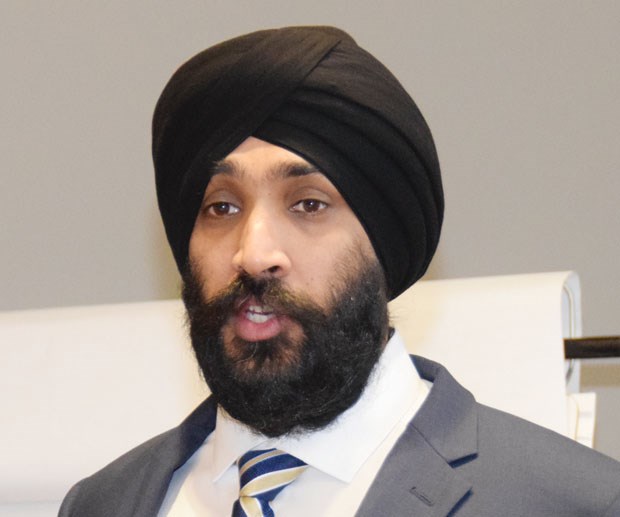The Delta Police Department has rolled out a new training program for all its employees aimed at helping reduce those unconscious biases that creep into everyday life.
Chief Neil Dubord said the program is aimed at reducing the gap between the community and police and building public trust in police.
The idea came out of former Attorney General Wally Oppal’s inquiry into the missing and murdered women on Vancouver’s Downtown Eastside. In his final report, released in 2012, Oppal concluded that bias can operate in a variety of ways, often through unintentional acts or failures to act.
“Law enforcement agencies mirror the society they serve,” Oppal wrote. “Thus the historic and continuing racism within Canadian society is likely to be reproduced in discriminatory policies and practices within law enforcement, unless and until steps are taken to actively work toward bias-free policing.”
One of the many recommendations that came out of Oppal’s report was that police agencies carry out mandatory training in overcoming biases, rather than more passive sensitivity training.
Dubord said in the absence of a province-wide program, which is in the works but has not been rolled out yet, the department decided to design its own. Delta is the first department in the province to take on training on overcoming implicit biases.
“We wanted to be leaders in this,” Dubord said.
Last fall Melissa Granum, corporate planning and communications manager for the department, and Sgt. Sukh Sidhu were in Winnipeg for a session on identifying and reducing unconscious biases.
Unconscious bias is something that develops in people over time, based on past life experiences and their current circumstances. It can unconsciously affect how a person interacts with people of a different race or ethnic background, gender, age or sexual orientation.
For example, Granum said, a police officer performing a routine traffic stop might approach the car differently depending on who they see in the vehicle — an elderly driver, a mom with a car seat in the back or a car full of teenagers.
Dubord said the training is important because as the community continues to become more diverse, police officers are coming into contact with a wider variety of people.
Granum said the initial training she and Sidhu received was based on a U.S. model that focused more on black-white race relations. She said they took that program and refined it to make it more specific to Canada and Delta.
“The ultimate goal is for them to understand that there is the existence and recognize it when it happens,” she said.
The department’s management team already went through the training course, which sparked some lively debate, Granum said, and the program was rolled out to all officers and civilian staff starting last Friday.



